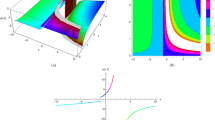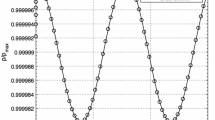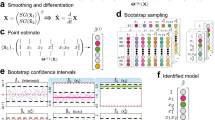Abstract
IN his account of Newton's work in pure mathematics (NATURE, Mar. 26, Suppt. p. 42), Prof. Mordell directs attention to the method of solving the cubic equation introduced by him. This method is in principle precisely that usually attributed to Horner; but the form quoted by Prof. Mordell is much more convenient in application than that given in most modern works on algebra. In the original form of the method, when we want to reduce the equation by 2, we replace y by p + 2, and rearrange in powers of p. In the usual form we divide three times by y 2; thus in finding the coefficient of the second term we add 2 to the original coefficient three times instead of simply adding 6. The introduction of division resulted in a great increase in labour instead of a reduction. If there is any doubt, try it both ways and see!
This is a preview of subscription content, access via your institution
Access options
Subscribe to this journal
Receive 51 print issues and online access
$199.00 per year
only $3.90 per issue
Buy this article
- Purchase on Springer Link
- Instant access to full article PDF
Prices may be subject to local taxes which are calculated during checkout
Similar content being viewed by others
Author information
Authors and Affiliations
Rights and permissions
About this article
Cite this article
JEFFREYS, H. Numerical Solution of Algebraic Equations. Nature 119, 565 (1927). https://doi.org/10.1038/119565a0
Published:
Issue Date:
DOI: https://doi.org/10.1038/119565a0
Comments
By submitting a comment you agree to abide by our Terms and Community Guidelines. If you find something abusive or that does not comply with our terms or guidelines please flag it as inappropriate.



